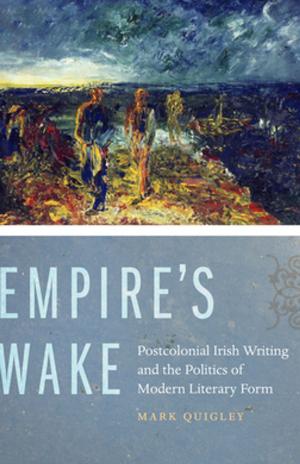From Slave Ship to Harvard
Yarrow Mamout and the History of an African American Family
Nonfiction, Social & Cultural Studies, Social Science, Discrimination & Race Relations, History, Military, Americas, United States| Author: | James H. Johnston | ISBN: | 9780823239528 |
| Publisher: | Fordham University Press | Publication: | May 14, 2012 |
| Imprint: | Fordham University Press | Language: | English |
| Author: | James H. Johnston |
| ISBN: | 9780823239528 |
| Publisher: | Fordham University Press |
| Publication: | May 14, 2012 |
| Imprint: | Fordham University Press |
| Language: | English |
“Part historical narrative, part genealogical detective work,” this is t****he true story of an African American family in Maryland over six generations (Library Journal).
Using diaries, court records, legal documents, books, paintings, photographs, and oral histories, From Slave Ship to Harvard traces a family—from the colonial period and the American Revolution through the Civil War to Harvard and finally today—forming a unique narrative of black struggle and achievement.
Yarrow Mamout was an educated Muslim from Guinea, brought to Maryland on the slave ship Elijah. When he gained his freedom forty-four years later, he’d become so well known in the Georgetown section of Washington, DC, that he attracted the attention of the eminent portrait painter Charles Willson Peale, who captured Yarrow’s visage in the painting on the cover of this book.
Yarrow’s immediate relatives—his sister, niece, wife, and son—were notable in their own right. His son married into the neighboring Turner family, and the farm community in western Maryland called Yarrowsburg was named for Yarrow Mamout’s daughter-in-law, Mary “Polly” Turner Yarrow. The Turner line ultimately produced Robert Turner Ford, who graduated from Harvard University in 1927.
Just as Peale painted the portrait of Yarrow, James H. Johnston’s new book puts a face on slavery and paints the history of race in Maryland, where relationships between blacks and whites were far more complex than many realize. As this one family’s experience shows, individuals of both races repeatedly stepped forward to lessen divisions, and to move America toward the diverse society of today.
“Part historical narrative, part genealogical detective work,” this is t****he true story of an African American family in Maryland over six generations (Library Journal).
Using diaries, court records, legal documents, books, paintings, photographs, and oral histories, From Slave Ship to Harvard traces a family—from the colonial period and the American Revolution through the Civil War to Harvard and finally today—forming a unique narrative of black struggle and achievement.
Yarrow Mamout was an educated Muslim from Guinea, brought to Maryland on the slave ship Elijah. When he gained his freedom forty-four years later, he’d become so well known in the Georgetown section of Washington, DC, that he attracted the attention of the eminent portrait painter Charles Willson Peale, who captured Yarrow’s visage in the painting on the cover of this book.
Yarrow’s immediate relatives—his sister, niece, wife, and son—were notable in their own right. His son married into the neighboring Turner family, and the farm community in western Maryland called Yarrowsburg was named for Yarrow Mamout’s daughter-in-law, Mary “Polly” Turner Yarrow. The Turner line ultimately produced Robert Turner Ford, who graduated from Harvard University in 1927.
Just as Peale painted the portrait of Yarrow, James H. Johnston’s new book puts a face on slavery and paints the history of race in Maryland, where relationships between blacks and whites were far more complex than many realize. As this one family’s experience shows, individuals of both races repeatedly stepped forward to lessen divisions, and to move America toward the diverse society of today.















